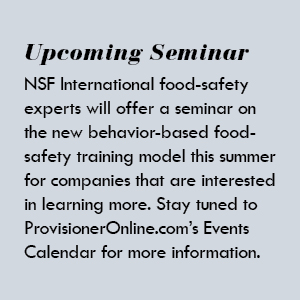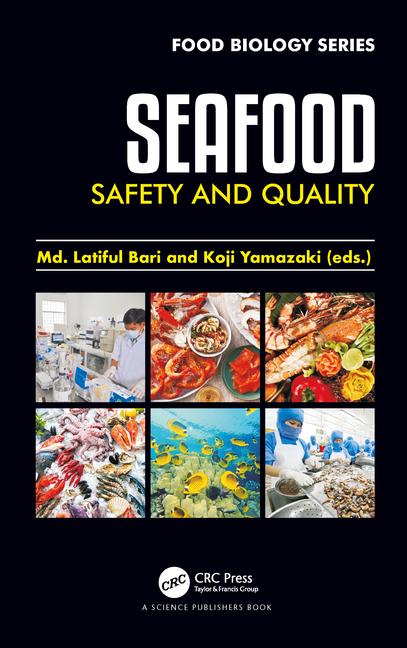Food handlers throughout the supply chain — from workers in the field to the supermarket deli — play an integral and vital role in the safety of the products they handle. After all, the policies and procedures that require so much time, money and effort to perfect, are only as good as the training and behavior of the employees following them.
Current and widely accepted food-safety training models are designed to work from a very basic assumption: that we are able to devise comprehensive and prescriptive rules for all food-safety practices that will be followed at all times, regardless of the situation. However, we all know from real life experience that this isn’t always the case.The industry has long recognized that proper food-safety training is a critical component to ensuring a safer global food supply. And yet, issues surrounding food-handler personal hygiene and cross-contamination continue to top the list of food-safety risk factors in processing plants.
Humans, regardless of the sanitary environment in which they are working, still contribute the greatest risk to food-processing environments. The prescribed solution to mitigating this risk is to ensure these individuals are given the time, tools and training necessary to facilitate proper food-handling practices. However, our assessment of nearly 10,000 trained food handlers to date revealed that 41 percent of these workers still demonstrate a dangerous gap between their knowledge of food-safety handling practices and their actual application of these principles in the workplace. How can we close the gap?
We have heard industry leaders say that in order to reduce or even eliminate food-safety risks from our supply chain, we must create a culture of food safety. How do we achieve such a tall order?
Our research and experience to date, and that of the food companies with which we’ve worked, confirms our belief that sustainable safe practices within the food sector are best achieved when we go with the grain of human behavior.
With this in mind, NSF International, in partnership with Cognisco, a specialist in assessing and developing workforce competence, combined leading research on human behavior and psychology with its expertise in food safety to design an intelligent behavior-based food-safety assessment model that helps companies build a culture of food safety. Only by effecting change in food handler behaviors will we be successful in embedding food safety within organizational culture to bring about change and improvement.
Upcoming Seminar

|






Report Abusive Comment